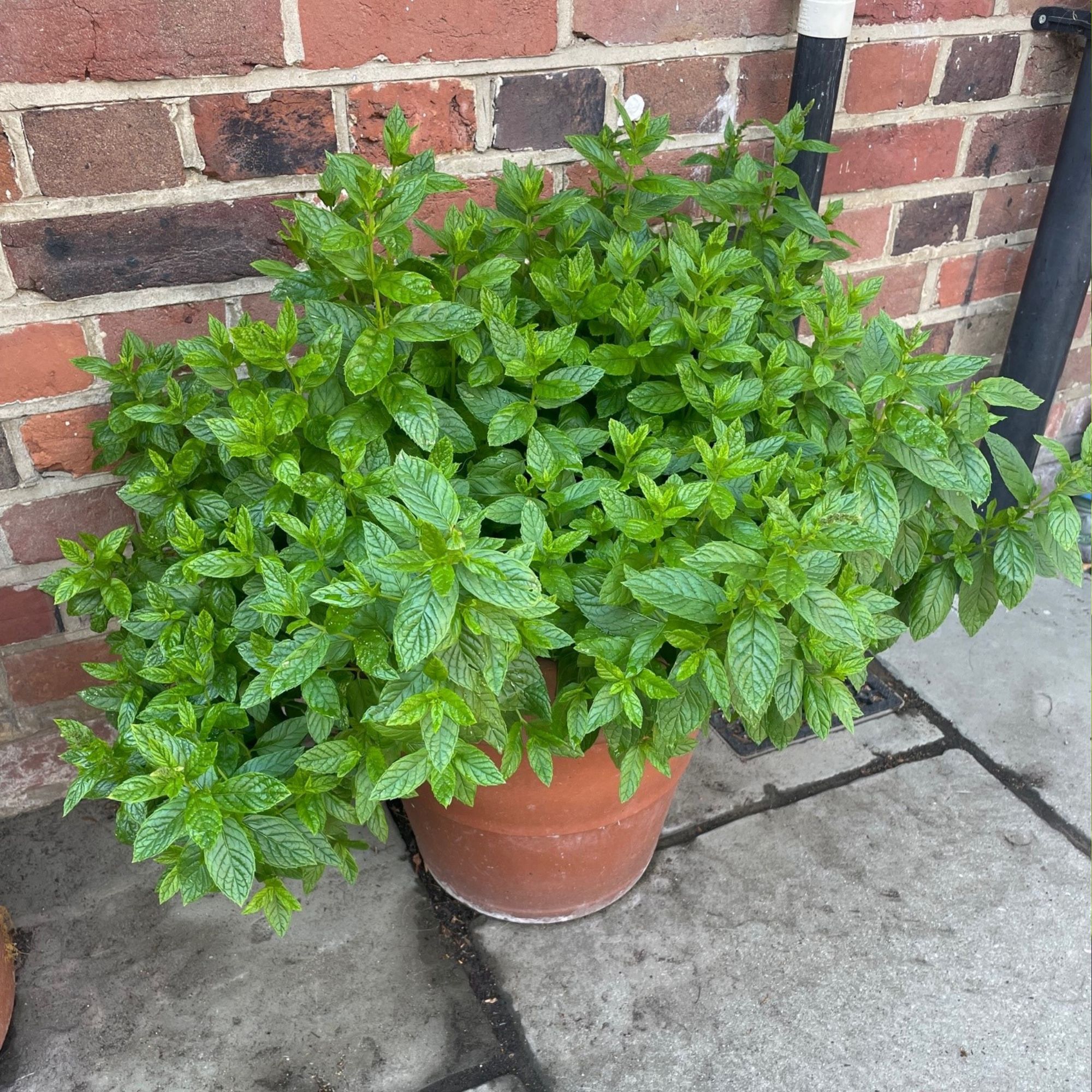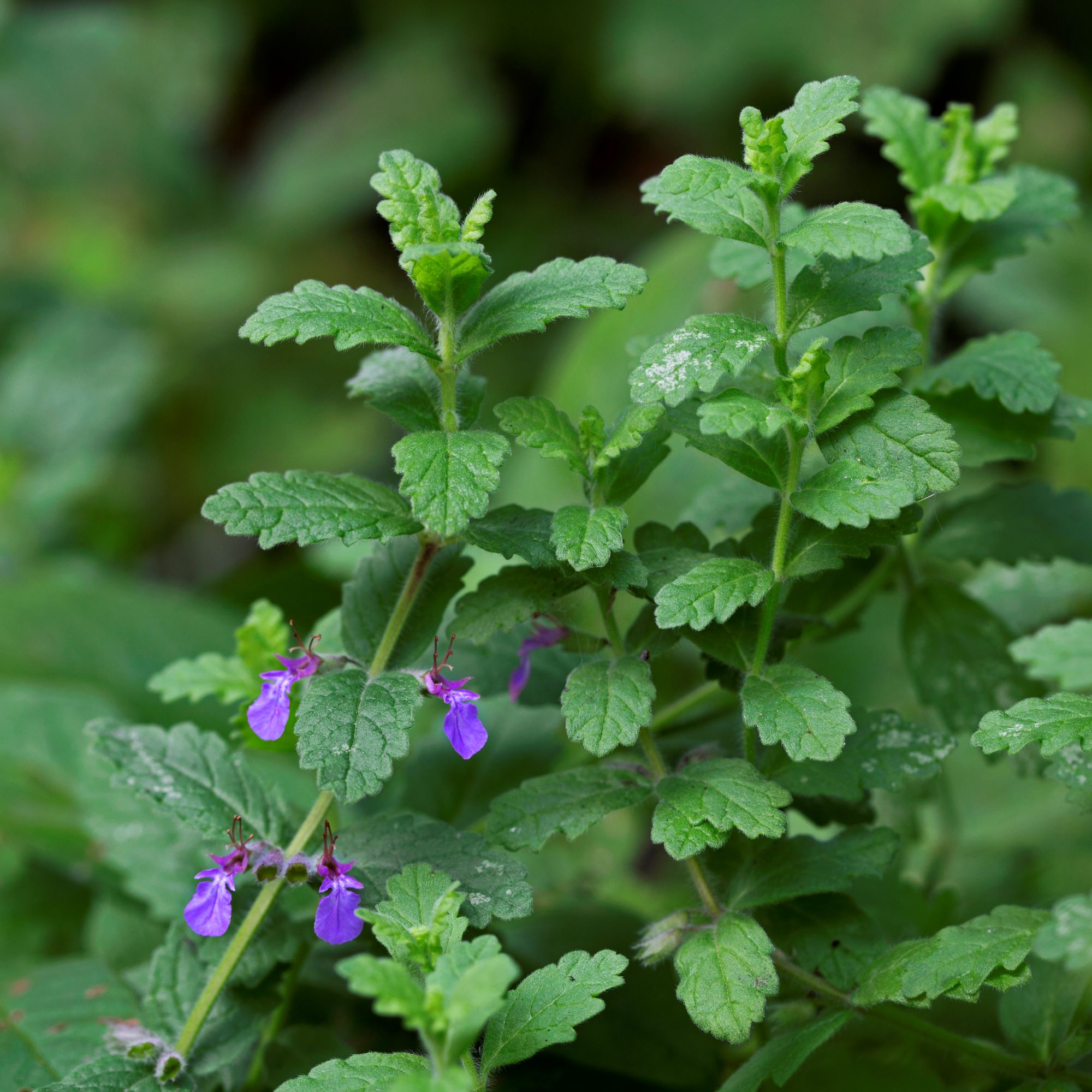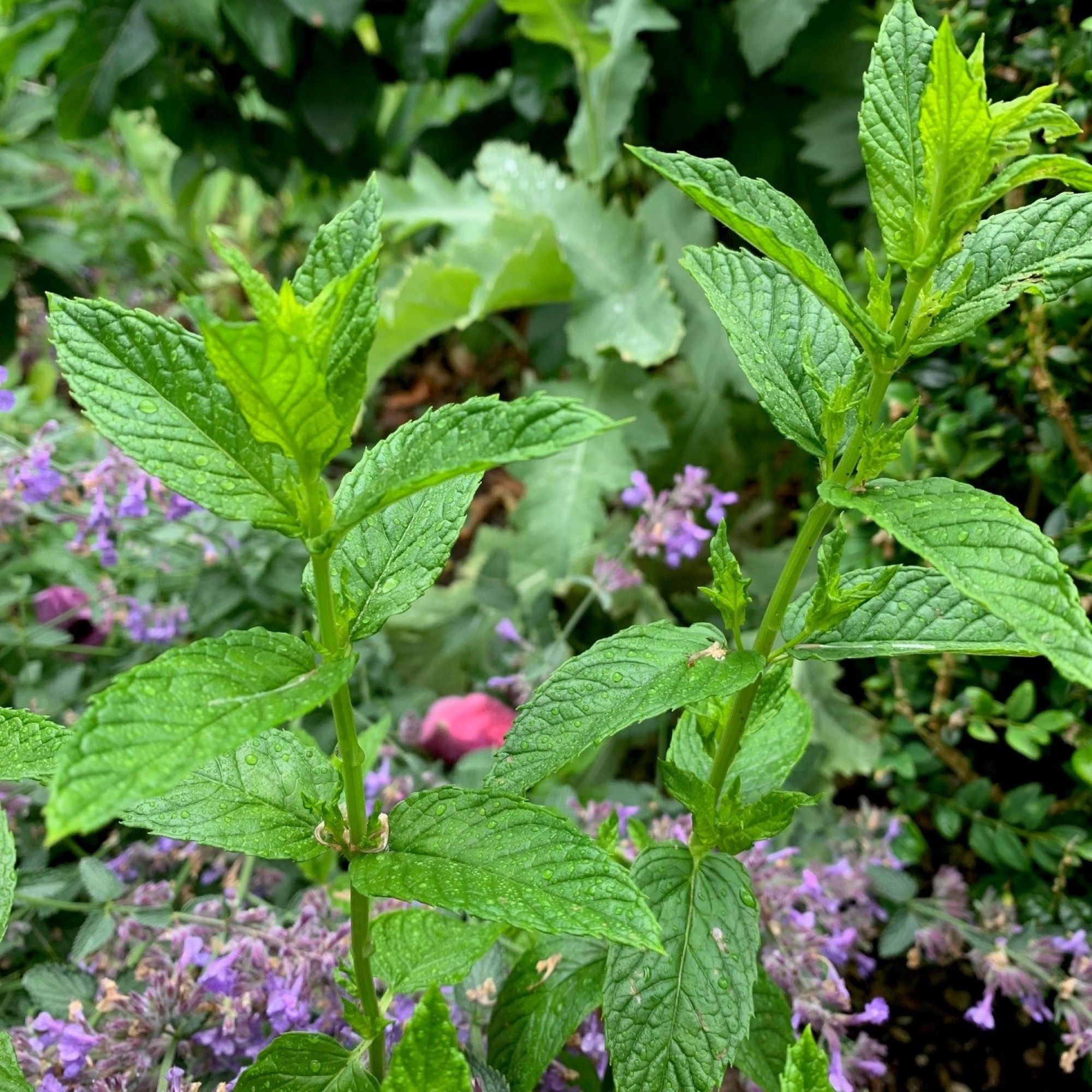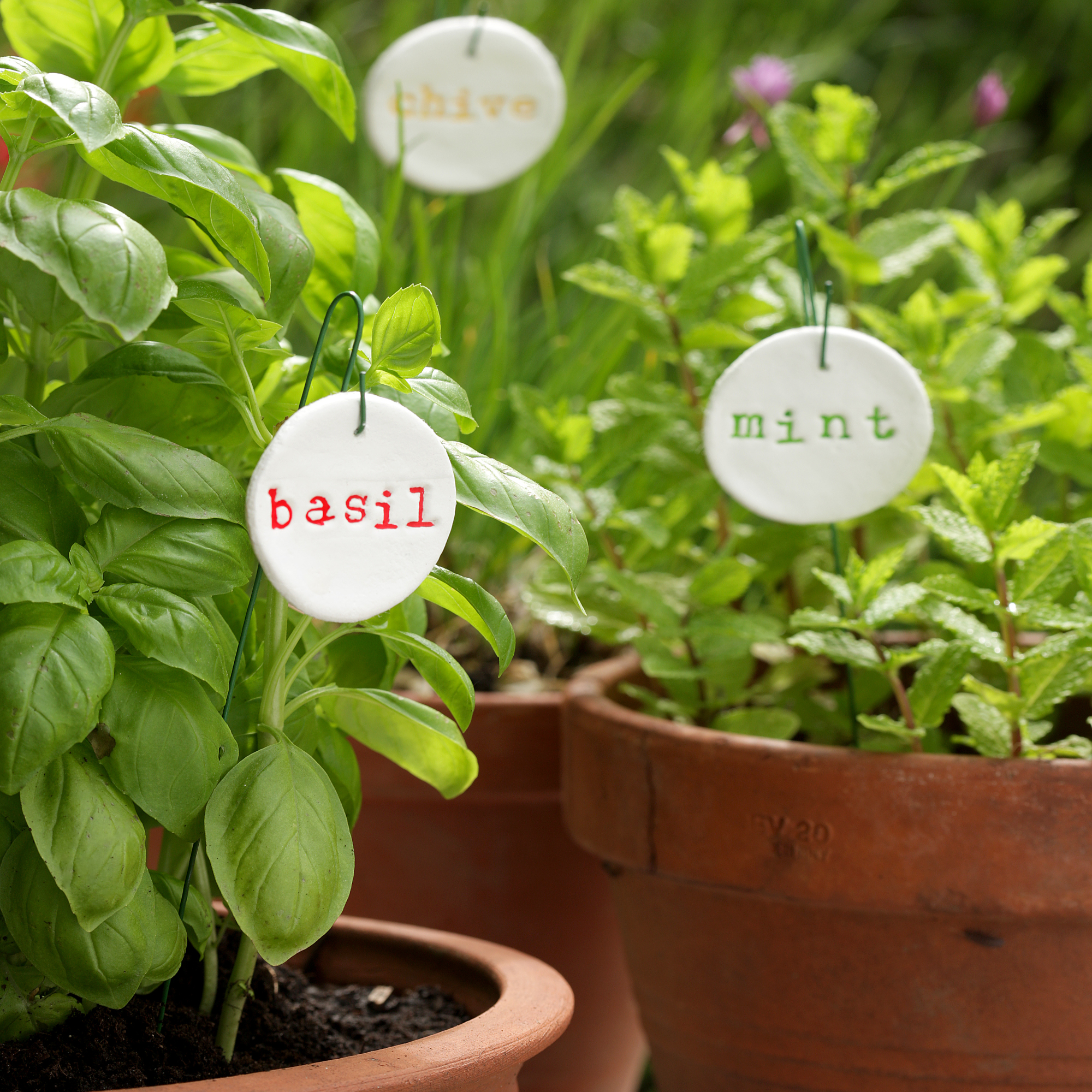
Are you keen to learn how to grow mint in a pot? Despite your uncanny knack for murdering the potted herbs you pick up at the local supermarket?
Don't worry: you've come to the right place. Because, when it comes to herb garden ideas, mint is actually one of the very best suited to beginners/plant murderers alike.
Better still? Why, keeping your mint in a pot is actually one of those bright garden ideas that professionals well and truly approve of, as it just so happens to be one of the most invasive herbs out there.

'If you plant mint directly into your garden, it's very likely that it will take over the whole plot in no time,' warns Christopher O'Donoghue, one of the co-directors at Gardens Revived.
While growing mint – either from seed or from mint cuttings – in a pot will prevent it from wreaking havoc with your flower beds, however, will it lead to a thriving plant?
'I always grow my own mint in pots,' adds Christopher. 'I've actually got one on my patio that's a few years old now – and it still looks bushier and happier than ever!'
How to grow mint in a pot
While growing mint in a pot is a beginner-friendly activity, though, there's more to this garden trend than simply sticking your supermarket-bought mint on the kitchen windowsill and watering it every so often.
What you will need
If you want to grow mint in a pot, you will need:
- Garden mint or other mint variety (either a young plant, propagated cutting, or plug plant)
- Bag of good quality potting soil
- Peat moss (optional)
- Generously sized pots (at least 30-40cm) with good drainage holes
- Garden trowel
'Choose a good form of mint that will bring your new potatoes or a Mojito alive, or to make your own super fresh mint tea,' advises Morris Hankinson of Hopes Grove Nurseries Ltd.
'The tastiest one is Moroccan Mint,' adds Morris, 'which you should be able to find in a good nursery or garden centre.'
A step-by-step guide:
Are you ready to get started? Then let's begin...
1. Prepare your pot
Before you do anything, prepare your mint's new home by filling a pot with good quality potting soil or compost.
'Mint prefers a slightly acidic soil,' says Christopher, 'so you can mix in a small amount of peat moss if needed.'
2. Transplant your mint

Mint hates to dry out, so make sure you have everything ready before you begin the transplantation process.
'Your plant may look a little bit lost to begin with in its generous-sized pot,' says Morris, 'but they grow very quickly, especially when the weather is warm.'
Place your pot in a sunny spot that receives at least 4-6 hours of bright, indirect sunshine every day – and be sure to water it well'
Christopher adds: 'Avoid overwatering by giving it a good dousing only when the top inch of soil feels dry.'
3. Prune it regularly
If you love all things minty, you're in luck: this is a herb that loves to feed the masses.
'You need to regularly pinch off the top leaves to encourage a bushier growth and prevent the plant from becoming leggy,' says Christopher. 'This also helps it to maintain a compact shape.'
Morris adds: 'If the stems get a little woody or flowers appear, just chop it back and a new crop of fresh young leaves will grow very soon after.'
4. Get harvesting

You can start harvesting mint leaves as soon as your plant reaches a few inches in height.
'Snip off the stems just above a set of leaves to promote continued growth,' says Christopher.
'Keep it up, and within a few weeks you will have more fresh mint than you can probably use,' adds Morris.
5. Divide and conquer
If your plant outgrows its pot, you will need to set to work dividing it up.
To do this, Christopher advises beginning the division process in early spring when new growth is just beginning (to allow the new plants to establish themselves).
'Thoroughly water your mint a few days before you begin dividing, as moist soil makes it easier to separate the roots,' he adds.

Once this is done, you will need to take the following steps:
- Get several new pots (with good drainage holes) ready
- Fill them with fresh potting soil
- Carefully remove the plant with a garden trowel, taking care not to damage the roots
- Examine the root system and locate natural divisions/separate clumps by pulling them gently apart
- Place each section into its new pot, and cover their roots with soil, pressing it down gently around the plant to secure it
- Water the newly potted mints thoroughly, before placing them in sunny locations
- Continue caring for them as you would your normal mint plant

Pictured above: Morris planted this thriving mint in May when it was a teeny 9cm plant. Look how it's grown!
'Dividing mint helps rejuvenate the plant and control its growth,' says Christopher.
'It also allows you to propagate new plants. With proper care, your divided mint plants should thrive in their new pots – so long as each division has a healthy root system and several stems.'
Hmm, anyone else suddenly feel the urge to rush to the local Co-Op and try this out on one of their mint plants?
Does mint grow back every year?
Mint is a hardy perennial, which means it comes back every year. However, you will need to give it a bit of TLC over the winter.
'Consider cutting it back and covering it with mulch in autumn, to give it a fighting chance when the temperatures dip down to freezing,' says Christopher.
Does mint grow well in a pot?
Mint grows incredibly well in containers – and, in fact, it is advisable to do so, as this is an invasive species of herb that will take over your garden given half the chance. Just be sure to use well-draining soil, pop it in a nice sunny spot, prune and harvest its leaves regularly, and keep it watered.







